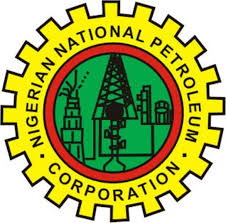The Nigerian National Petroleum Company Limited (NNPC) is facing significant challenges in revitalizing the nation’s refineries, primarily due to decades of neglect and the inherent complexities of repairing aging infrastructure. The Group Chief Executive Officer (GCEO), Mele Kyari, has openly acknowledged these difficulties, highlighting the substantial investments made in the Warri, Port Harcourt, and Kaduna refineries, which have yet to translate into profitability. He likened the situation to attempting to revive a long-neglected car, where addressing one issue often reveals another underlying problem. This cycle of repairs has hampered the refineries’ ability to operate efficiently and contribute meaningfully to Nigeria’s fuel supply.
Recognizing the need for external expertise, the NNPC has adopted a new approach to refinery management. A comprehensive commercial review of the Port Harcourt refinery led to the decision to partner with a reputable international refining company. This strategic collaboration aims to leverage the partner’s technical proficiency and operational experience to overcome the persistent challenges hindering the refinery’s performance. The GCEO emphasized that this model, known as the Incorporated Joint Venture (IJV), is crucial for ensuring the long-term sustainability and profitability of the refineries. By incorporating external expertise, the NNPC aims to break free from the cycle of recurring issues and establish a stable foundation for refinery operations.
Beyond tackling refinery issues, the NNPC is also addressing the critical problem of crude oil theft and pipeline vandalism. These illegal activities have severely impacted Nigeria’s oil production and revenue generation. The GCEO reported significant progress in combating these issues, resulting in the resumption of pipeline operations and a subsequent increase in crude oil output. This positive development signifies a crucial step towards stabilizing the nation’s oil sector and maximizing its economic benefits.
However, the NNPC’s reform efforts have not gone unchallenged. The GCEO revealed that the company is facing resistance from individuals and groups who oppose the ongoing transformation. He described these actors as detrimental to Nigeria’s progress and determined to undermine the NNPC’s efforts. This resistance underscores the complex political and economic landscape surrounding the oil sector in Nigeria, where vested interests often clash with the need for reform.
Despite these challenges, the GCEO remains steadfast in his commitment to transforming the NNPC. He reiterated his dedication to operating with transparency and integrity, asserting that he is not pressured to make decisions that are not in the best interest of Nigeria. He emphasized the need for patience from the Nigerian people, assuring them that the long-term benefits of these reforms will outweigh the short-term difficulties. This commitment to transparency and long-term sustainability aims to build public trust and garner support for the challenging but necessary reforms.
The Petroleum and Natural Gas Senior Staff Association of Nigeria (PENGASSAN) has expressed its support for the NNPC’s reform agenda and acknowledged the positive strides made under the current leadership. The union specifically commended the progress achieved in curbing pipeline vandalism and crude oil theft, which has led to increased production and revenue. PENGASSAN also endorsed the IJV model for refinery management, emphasizing the importance of reducing political interference and ensuring the continuous operation of the refineries. This collaboration between the NNPC and PENGASSAN signals a united front in addressing the challenges facing the oil sector and working towards a more sustainable and prosperous future for the industry.


